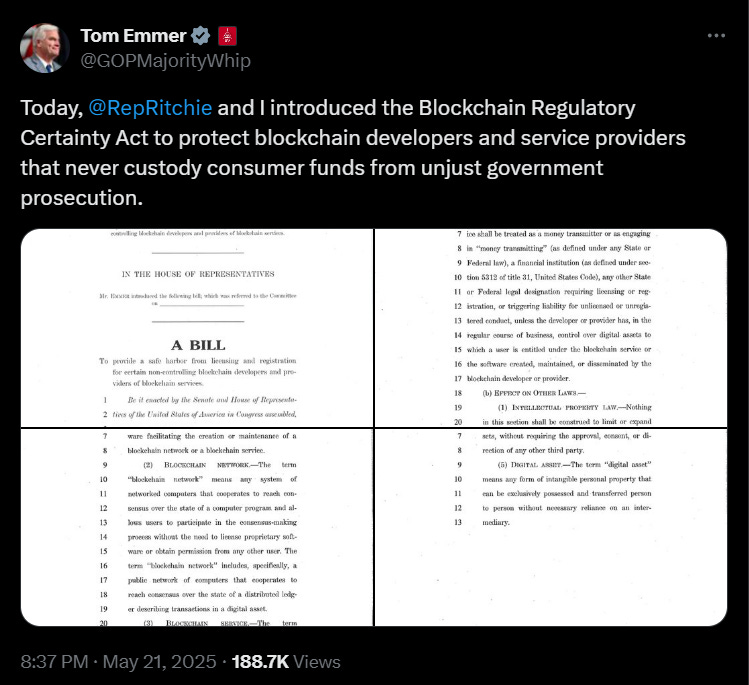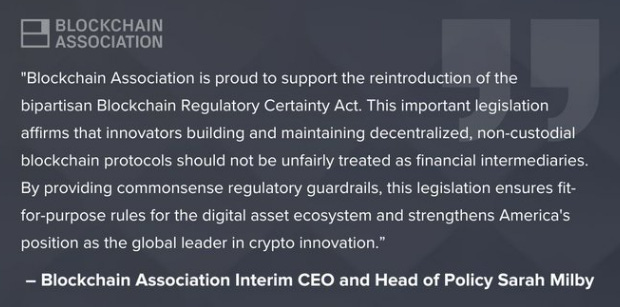Bipartisan Bill Backs Blockchain Innovation
Despite past resistance, the legislation returned with backing from both the sides and tighter safeguards to finally separate code writers from money handlers.
Republican Tom Emmer and Democrat Ritchie Torres on Wednesday, May 21, reintroduced the Blockchain Regulatory Certainty Act, which addresses a fundamental confusion that's plagued crypto regulation for years.
The problem: Current money transmission laws treat crypto developers like banks, even when they never touch customer funds.
The solution: If you're not holding people's money, you're not a money transmitter or bank.
"If we want to keep the next generation of builders in the United States, this kind of legal clarity is essential," Torres said.
The legislation protects three key groups
Miners and validators who process transactions but never custody funds
Wallet developers who create software for users to control their own crypto
Protocol builders who maintain decentralised networks
Industry groups lined up to support it.
"Avoiding surprise prosecutions, creating legal clarity, and encouraging free speech and software development are not partisan issues; they are core American values, and the BRCA codifies them," said Peter Van Valkenburgh, executive director of Coin Center.
The Blockchain Association said it would help America compete globally.
Emmer and Torres come with experience.
They introduced the original version back in 2018, when most of Washington still thought Bitcoin was magic internet money.
The crypto market has expanded from hundreds of billions to over $3 trillion in total value. Major corporations now hold Bitcoin on their balance sheets. Pension funds invest in crypto ETFs. Traditional banks offer digital asset services.
Yet the regulatory framework remains stuck in 2008, treating blockchain developers like traditional financial intermediaries.
"Similar language was voted down in markup last Congress, we took that feedback seriously and returned with a smarter, sharper framework," Torres acknowledged.
The revised bill includes stronger anti-money laundering provisions and clearer definitions, addressing previous Democratic concerns about regulatory gaps.
Earlier this year, Emmer and Torres established the Congressional Crypto Caucus, a bipartisan group focused on understanding technology rather than just regulating it.
The caucus represents a new approach to crypto policy — one focused on understanding technology rather than simply regulating it. Members include representatives from both parties who've taken time to comprehend blockchain's potential and pitfalls.
The strongest argument is competition: while other countries welcome crypto, the US delays.
Singapore launched comprehensive digital asset frameworks
Switzerland's "Crypto Valley" offers regulatory certainty
Hong Kong is rebuilding its crypto hub status
The UAE created dedicated crypto-friendly zones
Every month of American regulatory uncertainty sends more companies abroad. Not just crypto startups, but established firms seeking clarity for their digital asset operations
The Blockchain Regulatory Certainty Act represents everything crypto regulation should be: clear, targeted, and innovation-friendly.
It addresses genuine confusion without strangling development. It protects infrastructure builders without compromising oversight.





